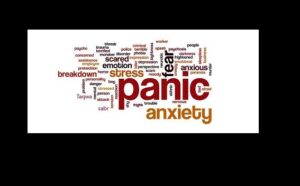Israeli prisons are stealing Palestinian’s childhoods and lives
![]()
Before his arrest, 15-year-old Izz al-Din Jamjoum lived a peaceful and ordinary life. He spent his days going to school and playing football in the streets of his neighbourhood, al-‘Esawiyah, in northeast Jerusalem. But one day, that peaceful life was suddenly taken away.
On 15 March, while on his way to pray at Al-Aqsa Mosque through Bab al-Amoud, Israeli soldiers stopped him, forced him into a military jeep, and beat him.
“I asked them why they were arresting me,” Izz al-Din told The New Arab. “No one answered. Instead, they blindfolded me, bound my hands behind my back, and took me to an interrogation centre in the Old City of Jerusalem.”
What followed, he says, was 20 days of fear, violence, and abuse.
“I was beaten until I fainted more than once,” he said. “They gave me rotten food — mouldy milk, bread fit only for a cat — and uncooked rice at night.”
Each night, he was forced to sleep on a cold iron bed with no mattress. His body was bruised and sore. “Soldiers would burst into the cell at night to wake me violently, just to torment me psychologically,” the child shares.
Throughout his time in detention, Izz al-Din says he was kept away from both his family and any legal support. “They took me to court hearings that my family didn’t even know about. I asked the judge why I was arrested, but he ignored me.”
Eventually, after 20 days, the authorities let him go — but the punishment continued.
On 3 April, he was released under strict conditions: he was placed under open-ended house arrest and fined 5,000 shekels (around $1,400).
Loss of innocence
Now, Izz al-Din cannot leave his home, or even go to school.
“I was preparing for my exams,” he said quietly. “And now my future is slipping away. I used to go to school in the morning and play football in the evening… Now I’m stuck here, not knowing when this nightmare will end.”
Each day, from behind the cramped walls of his home, Izz al-Din watches other children playing outside, his heart aching for the freedom he once had.
His mother, Suhair Jamjoum, said her son’s arrest left the whole family in shock. “No words can capture the pain of seeing my son arrested and treated so cruelly. He carried no weapon — only a simple dream: to pray, to learn, to live his childhood like any other child.”
When Izz al-Din came home, she noticed straight away that something had changed. “There was a loss of innocence in his eyes — beyond his 15 years,” she said.
She now sees the house arrest as another form of prison. “Every day he looks out at the playing children, and my heart breaks seeing him denied the freedom he deserves.”
Because of this new reality, Suhair has called on the world to take action. “I urge the world to look at Palestinian children with their hearts. Intervene now to end the arrest of Palestinian minors and protect them from such brutal treatment. They deserve a life of dignity — to attend school safely, to play without fear, and to dream of a bright future, not to live imprisoned in their own childhood.”
Serious crimes
Sadly, Izz al-Din’s story is not unique.
According to a joint report released on 10 April 2025 by Palestinian prisoners’ affairs groups, more than 9,900 Palestinians are currently held in Israeli prisons — including at least 400 children.
Ra’ed Abu al-Hummus, the chairman of the Palestinian Prisoners’ Affairs Authority, explained that since 1967, almost one million Palestinians have been arrested by Israeli forces. Among them, over 50,000 are children under 18.
He said the number of arrests has grown sharply since the genocide in Gaza began on 7 October 2023. Since then, more than 16,400 Palestinians have been detained — including over 510 women and around 1,300 children. Many others, especially from Gaza, are missing and unaccounted for due to forced disappearances.
Even worse, some children are never found. In June 2024, Save the Children reported that around 21,000 children in Gaza were missing — some detained, some buried under rubble, and others believed to be in mass graves.
Ra’ed noted that Israel openly violates more than 27 international treaties that protect children, including the Convention on the Rights of the Child.
These violations include raiding homes late at night or dawn, denying minors the right to have their families or legal counsel present, forcing children to sign confessions written in Hebrew — a language many do not understand — and threatening them with harm to their families.
Children are also subjected to severe beatings, verbal abuse, and threats of sexual violence, and are often restrained with painful plastic handcuffs during arrest and transport.
Unable to look away, Ra’ed is now asking the international community to act. He says human rights groups must step in and make sure Israel is held responsible for what he calls serious crimes against children and all detainees.
Between life and death
In some cases, the abuse does not just harm children — it kills them.
On 3 April 2025, 16-year-old Walid Khalid Ahmed from Silwad, near Ramallah, died in Megiddo Prison, becoming the 63rd Palestinian prisoner killed in Israeli custody since the genocide in Gaza began.
His father, Khalid Ahmed, shared his story with The New Arab. He said Walid was arrested on 30 September 2024 and was never given a trial before his death.
“That unforgettable night,” Khalid said, “I woke to the sound of explosions and Israeli soldiers screaming as they stormed our home at midnight. There stood Walid in his underwear before their guns.”
Khalid said Walid was a smart student and a talented footballer. “A diligent high-school student and the top scorer on our village football team.”
His dream was to join the Palestinian national football team and study banking abroad, but that dream was cut short.
After his arrest, Walid was taken to Megiddo Prison — “where the barbed wire marks the line between life and death,” his father said.
Inside, Walid quickly became ill. “He lost a great deal of weight, developed scabies and infections, and lost consciousness before they announced his death,” Khalid explained.
A later autopsy revealed that Walid had been beaten, starved, and denied medical care, treatment that led his father to accuse the Israeli military of killing him on purpose.
Rasha Jalal is an author and journalist from Gaza who covers political events and humanitarian issues



